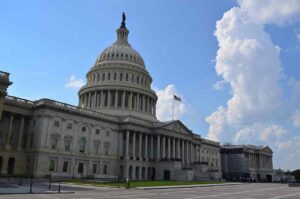INTERVIEW ON THE PRICE OF BUSINESS SHOW, MEDIA PARTNER OF THIS SITE.
Recently Kevin Price, Host of the nationally syndicated Price of Business Show, interviewed Phil DeMuth.
Phil DeMuth, Managing Director at Conservative Wealth Management, LLC, recently wrote an article for the Wall Street Journal expressing his opposition to the SECURE Act–SECURE is an acronym for Setting Every Community Up for Retirement Enhancement. They discuss DeMuth’s recent article in the Wall Street Journal.
The Secure Act would upend 20 years of retirement planning and stick it to the middle class.Like grave robbers opening King Tut’s tomb, Congress can’t wait to get its hands on America’s retirement-account assets. The House passed the Setting Every Community Up for Retirement Enhancement Act, known by the acronym Secure, in May. The vote was 417-3. The Secure Act is widely expected to pass the Senate by unanimous consent. While ostensibly helping Americans save for retirement, the bill would actually reduce the value of all retirement savings plans: individual retirement accounts, 401(k)s, Roth IRAs, the works.
The main problem with the Secure Act is that it eliminates the stretch IRA, the fixed star in the financial-planning firmament since 1999. The stretch IRA lets savers leave their retirement accounts to children, grandchildren or other beneficiaries. Under current rules, the recipients can parcel out the required minimum distributions from the accounts over the course of their actuarial lifetimes. Payouts tend to be relatively small for children but grow in size over the decades until the inherited IRA might comfortably provide for the child’s retirement through the power of tax-deferred compounding. A parent could die with the knowledge that, whatever vicissitudes their children might experience in life, they won’t have to worry about retirement.
Congress wants to kill this. The Secure Act gives non-spouse beneficiaries 10 years to pull out all the money in an IRA. The effect would be to make more of an IRA subject to higher taxes sooner, as distributions are made in supersize chunks. As much as one-third more of an inherited IRA would get gobbled up by taxes than under current rules. When the Tax Cuts and Jobs Act expires in 2025, taxes will rise across the board. If President Trump signs the Secure Act into law, the stage will be set for a taxpocalypse sometime in the next decade.
In exchange for its windfall under the Secure Act, Congress will push back the age at which retirees must take their first required minimum IRA distributions from 70½ to 72. This isn’t the deal American savers were promised when they made contributions to their IRAs the last 20 years. Before, the optimal approach was for savers to leave their IRAs to their children or grandchildren and stretch the payouts over decades.
Under the Secure Act, an IRA owner could still leave the account to a surviving spouse, who’d remain exempt from the 10-year clock. But the widow would be paying taxes in the higher “filing single” bracket. The bracket can easily jump from 12% to 25% or from 24% to 35% as the mandatory payout ratios automatically increase with age. For example, the required minimum distribution for a 70-year-old is 3.7% of the retirement-account balance; for a 90-year-old it is 8.8%.
LISTEN TO THE INTERVIEW IN ITS ENTIRETY HERE:
The Price of Business is one of the longest shows of its kind in the country and is in markets coast to coast. The Host, Kevin Price, is a multi-award winning author, broadcast journalist, and syndicated columnist. Learn more about the show and its digital partners at www.PriceofBusiness.com (scroll down to the bottom of the page).




